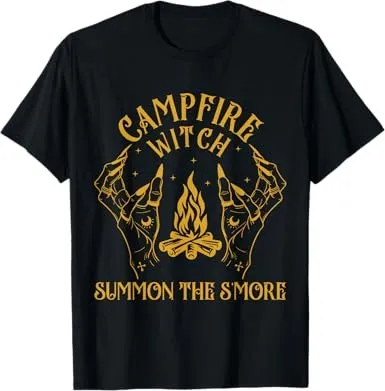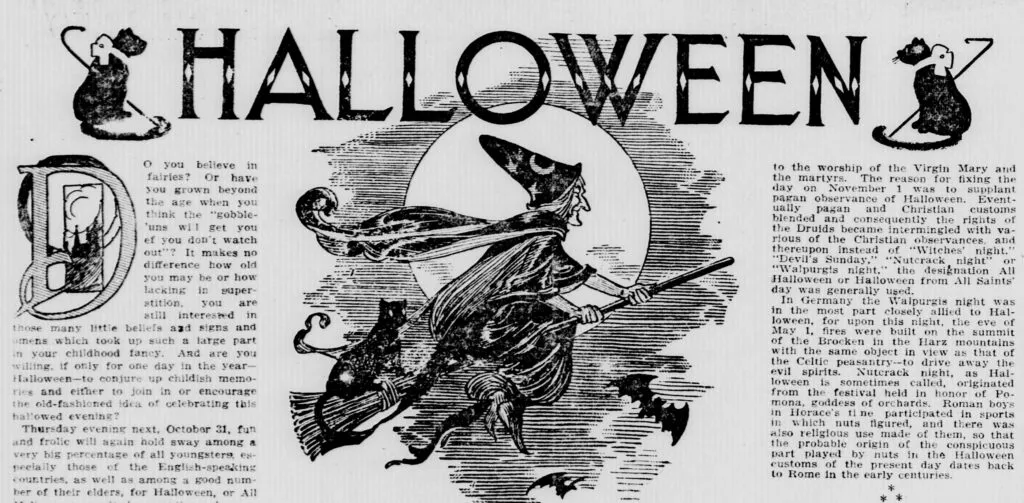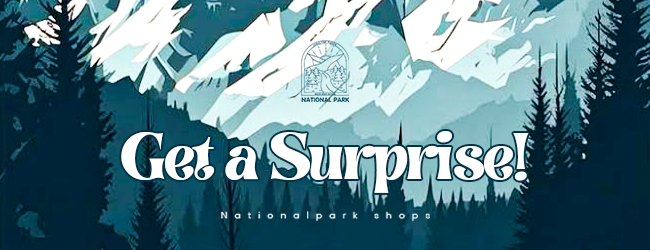The association between Halloween witches and the celebration of Halloween is a fascinating intertwining of history, folklore, and cultural evolution. This article, presented by Nationalparkshop, delves into the origins and significance of witches in Halloween traditions, exploring how they became emblematic of this spooky holiday.
The Ancient Roots of Halloween Witches
The origins of Halloween date back to the Celtic festival of Samhain, held on October 31 to mark the end of the harvest season and the start of winter. During Samhain, the Celts believed that the veil between the living and the spirit world was at its thinnest, allowing spirits to roam the Earth.
This belief created a fertile ground for mystical practices and figures like witches to emerge. Witches, often seen as wise women or healers, played essential roles in Celtic communities for their knowledge of herbs, healing, and ability to communicate with the spirit realm. However, the arrival of Christianity in Europe dramatically altered perceptions of these figures.
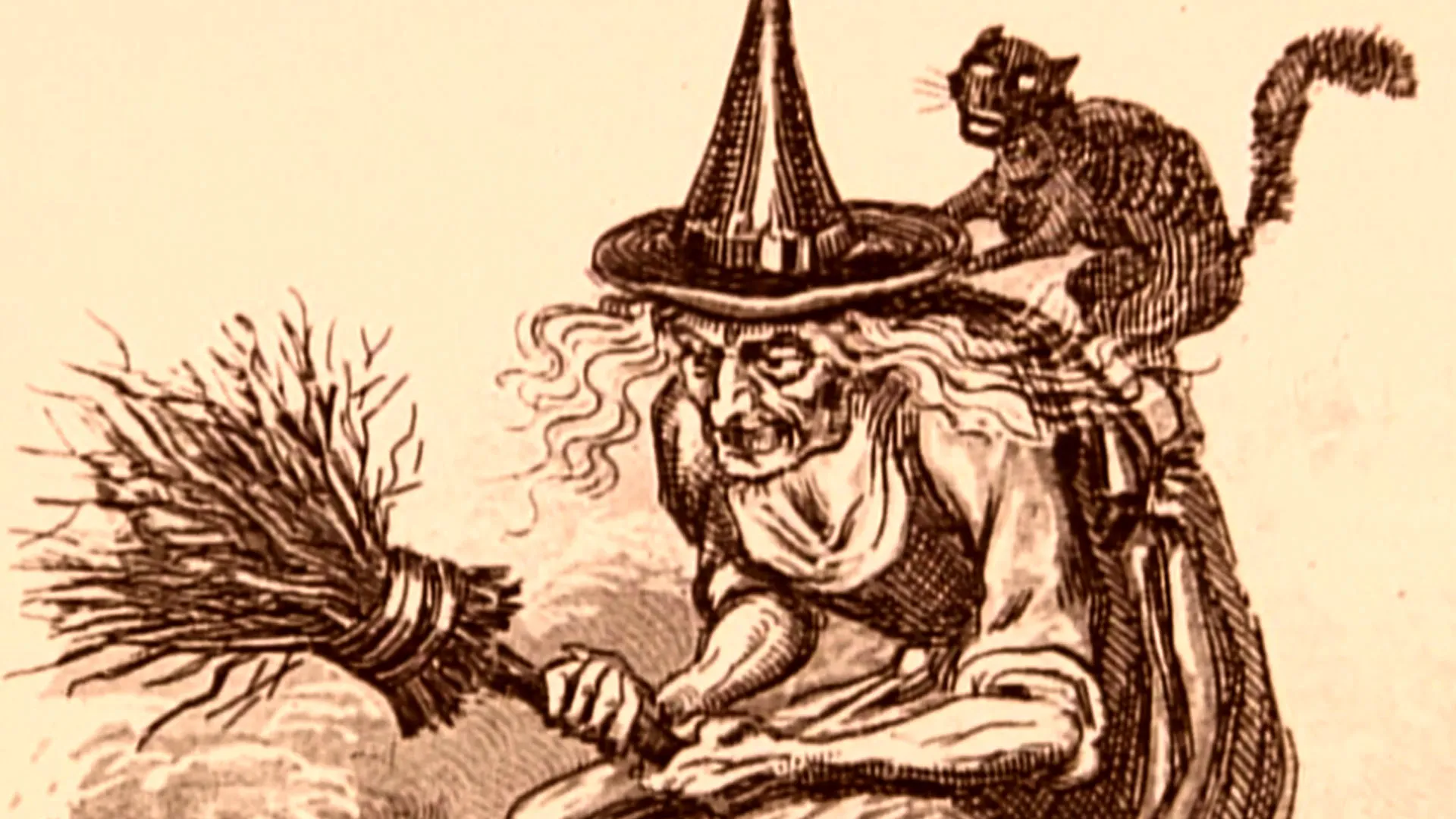
The Christian Influence: Demonization of the Witch
As Christianity spread across Europe, the Church began to incorporate certain pagan customs into Christian observances, while also demonizing others. With this shift, witches, who were once respected for their wisdom, were increasingly viewed with suspicion.
This was especially true during the Middle Ages, when associations between witchcraft and the devil grew stronger. By the 15th century, witch hunts began across Europe, culminating in horrific events like the Salem Witch Trials in colonial America. Thousands of people—mainly women—were accused of witchcraft and faced severe punishment or death, solidifying the witch’s image as a figure of fear and malevolence.
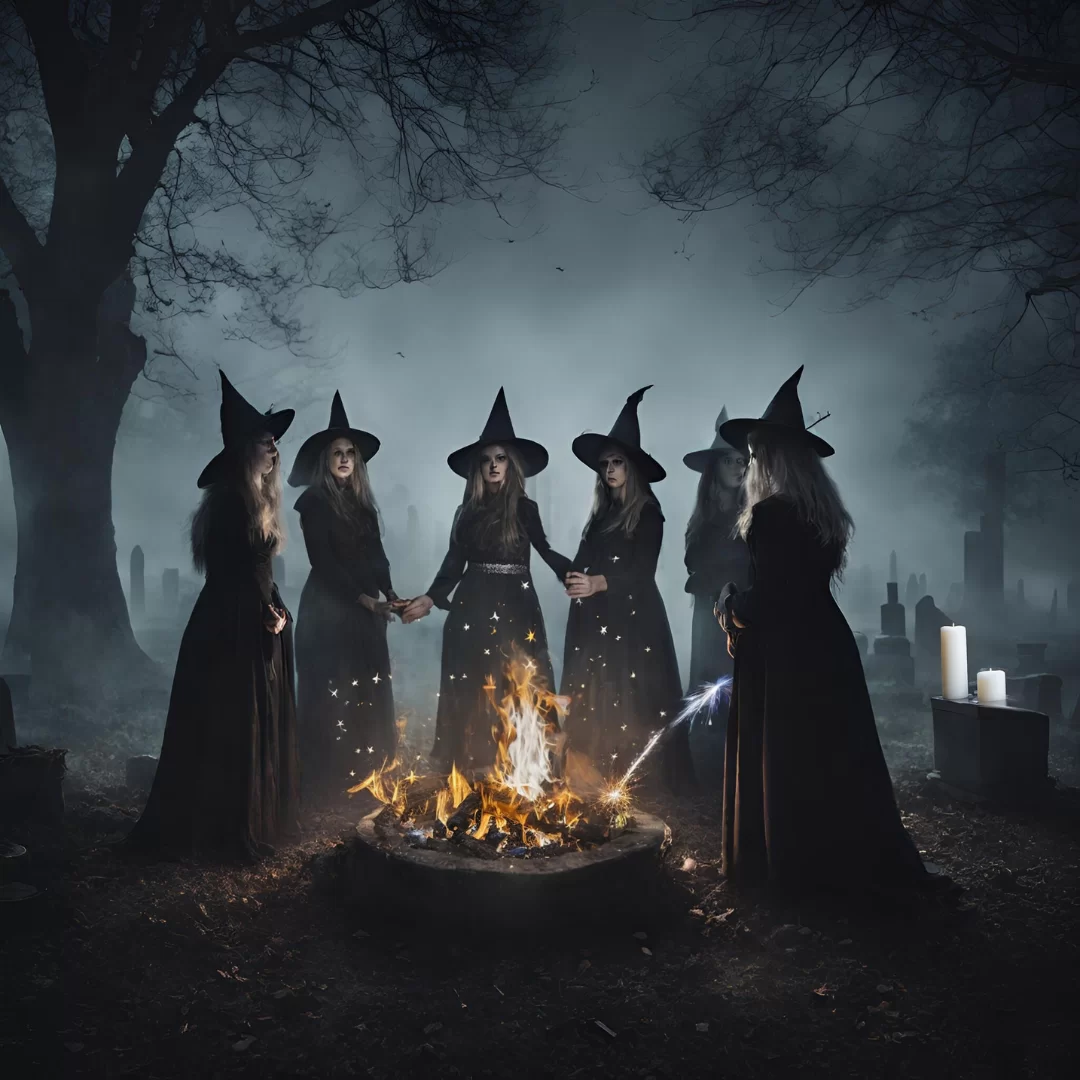
Witches in Folklore and Literature
Shaping the Witch’s Image
Over time, literature began to shape the visual and cultural image of the Halloween witch. William Shakespeare’s play Macbeth introduced the “Weird Sisters,” whose cryptic prophecies and magical abilities painted them as both feared and revered. These witches, along with others from European folklore, came to embody certain key features: pointed hats, cauldrons, broomsticks, and often, black cats as companions. This imagery became central to the way witches were depicted in Halloween lore.
Influence of Halloween Traditions and Pop Culture
By the 19th century, Halloween was becoming more commercialized, especially in America. Costumes and decorations began to reflect the witch as an icon of the holiday, with exaggerated features designed to evoke fear and fascination. Stories of witches stirred imaginations, while elements from popular books, and later films, further solidified their association with Halloween.
Today, films like Hocus Pocus and The Craft continue to define the witch archetype, presenting characters who are powerful, independent, and sometimes misunderstood.
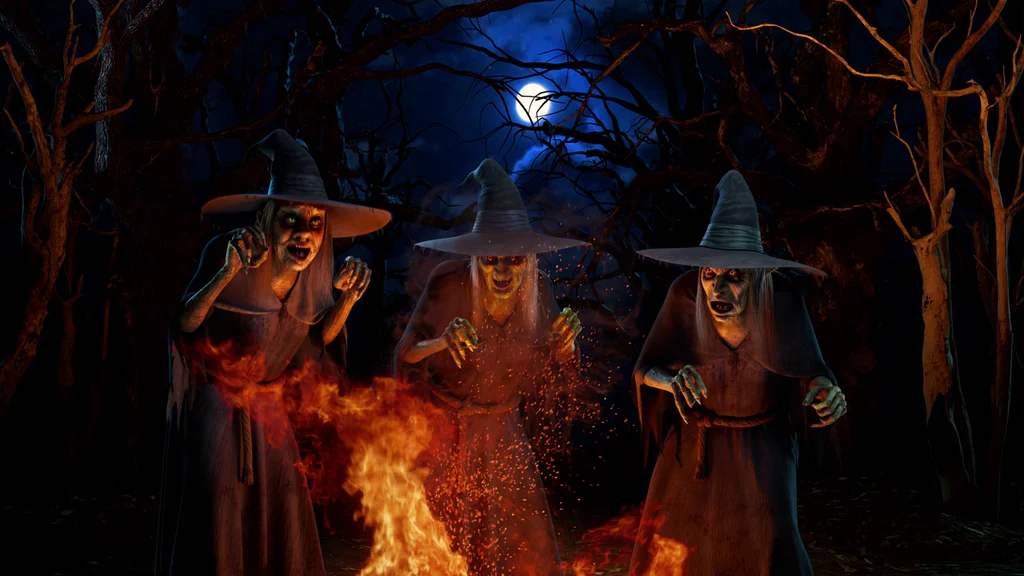
The Modern Halloween Witch: Symbols of Empowerment and Resistance
In recent decades, the image of the Halloween witch has transformed once again. Many now see witches as symbols of female empowerment, embodying strength, rebellion, and a connection to nature. The growing popularity of Wicca and other neo-pagan practices has renewed interest in witchcraft as a spiritual path. For modern practitioners, Halloween (or Samhain) is a time for reflection, honoring ancestors, and celebrating the cycles of nature.
The witch has also become a feminist icon, representing resistance against societal constraints. Figures like the witch, once feared as outsiders, now resonate with people who see themselves as marginalized or misunderstood. For some, dressing as a witch during Halloween is a way to honor this connection and assert individuality.
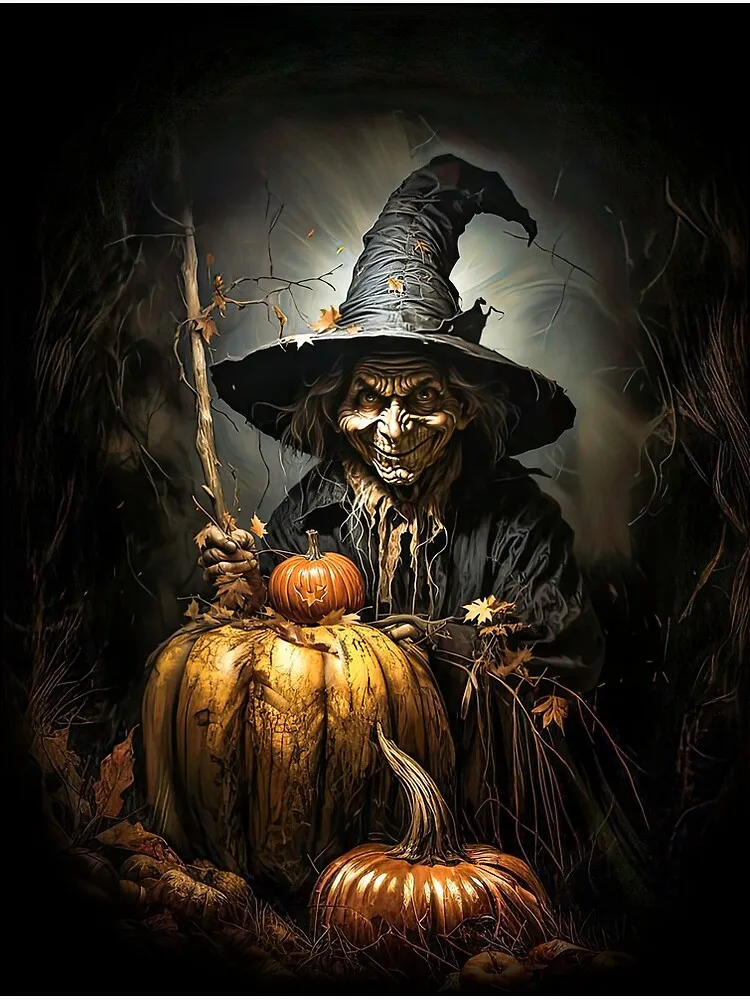
Commercialization and Halloween Celebrations
Today, the witch is one of the most popular Halloween costumes, and her image is seen on everything from candy packaging to home décor. Retailers embrace the witch motif, selling items like pointed hats, wands, and cauldrons to enhance Halloween festivities. Communities have also embraced the theme, with events like “Witch Walks” and “Witch Festivals” held in towns across America. These gatherings not only celebrate Halloween but also explore the historical significance of witches and their ongoing role in modern culture.
Unique witch costume images for Halloween
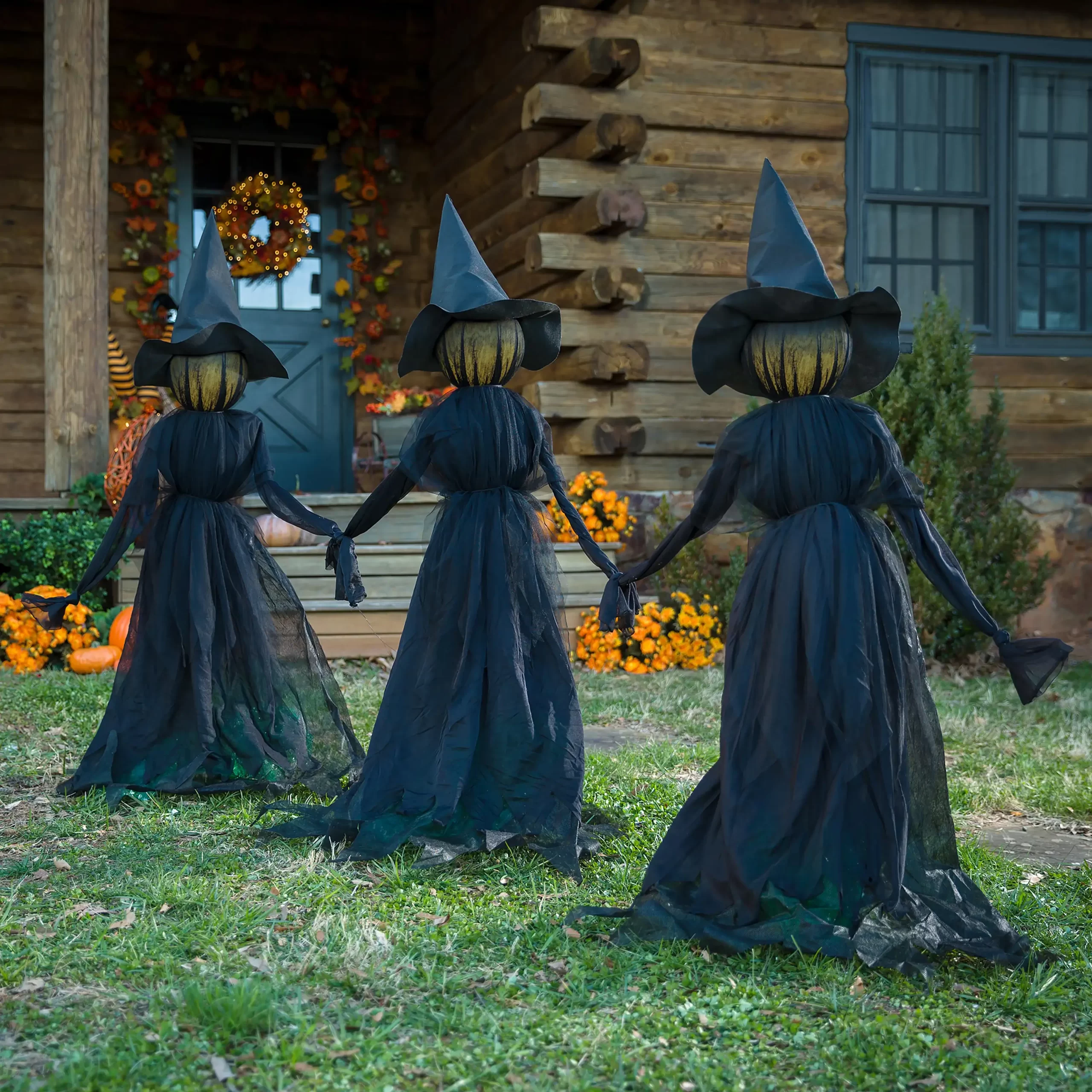
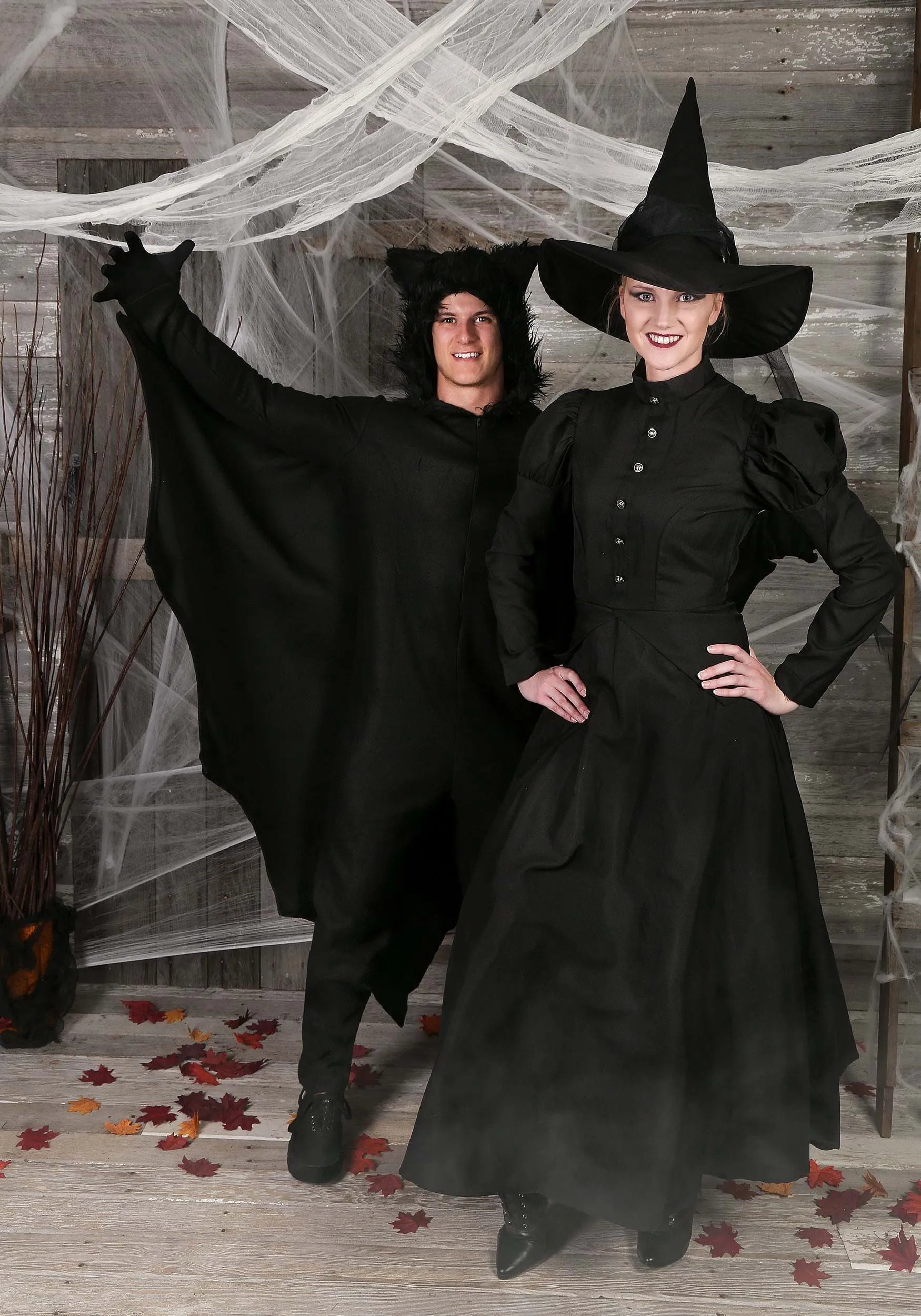
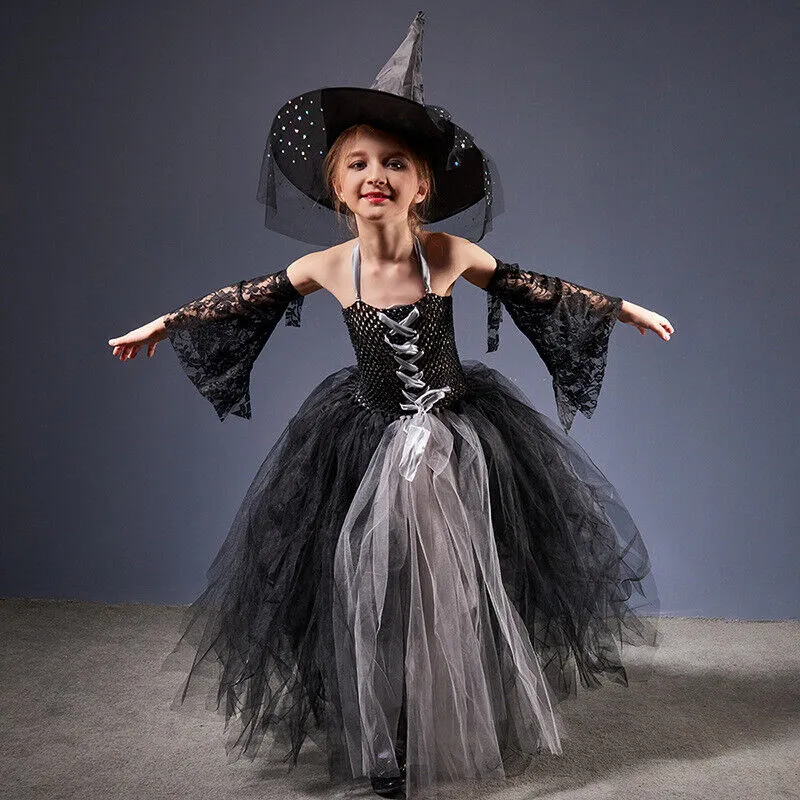
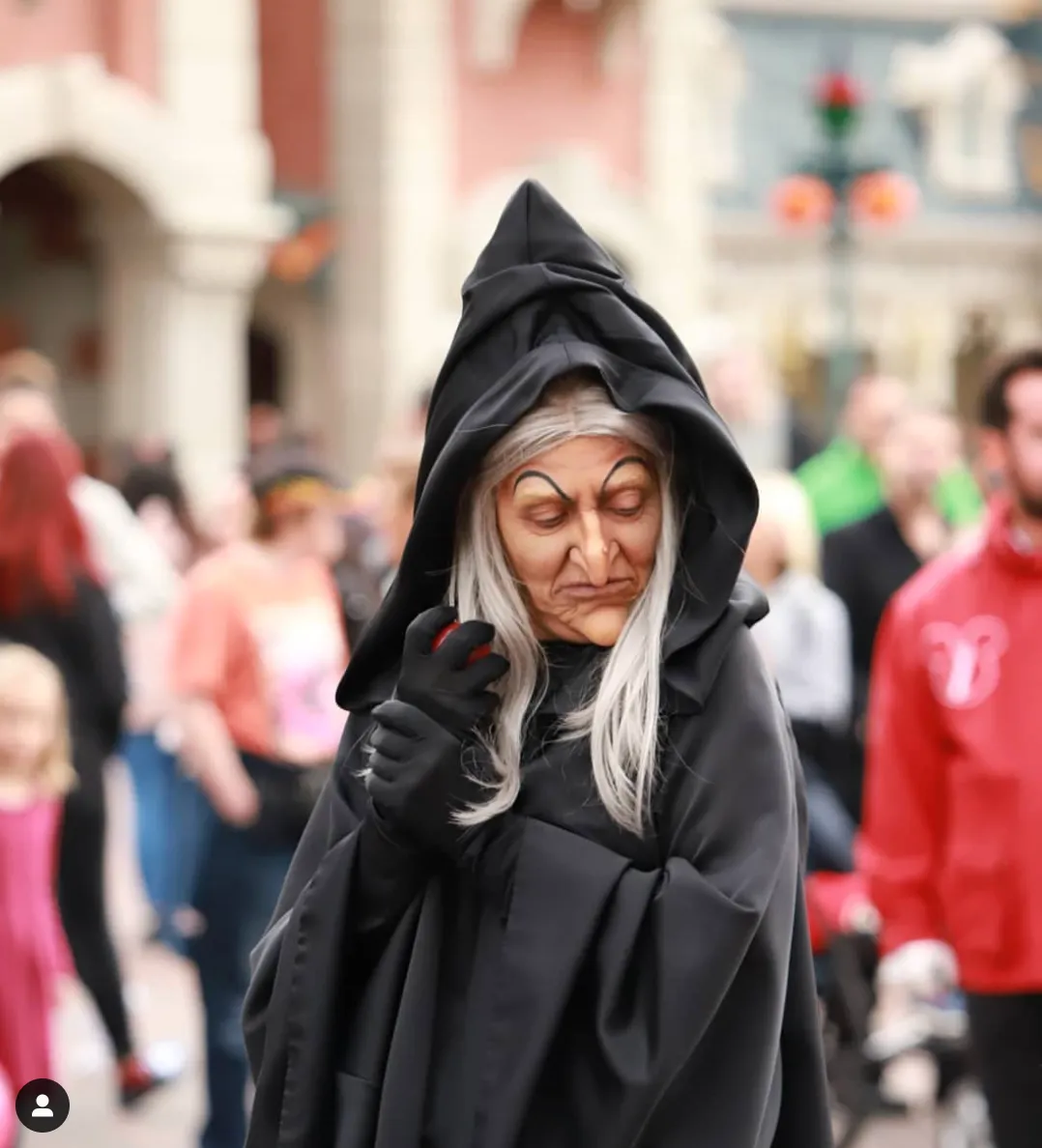
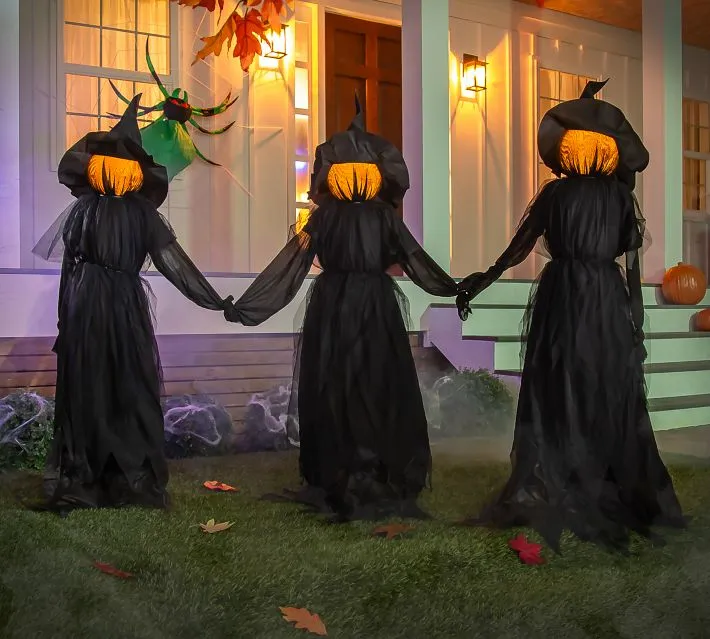
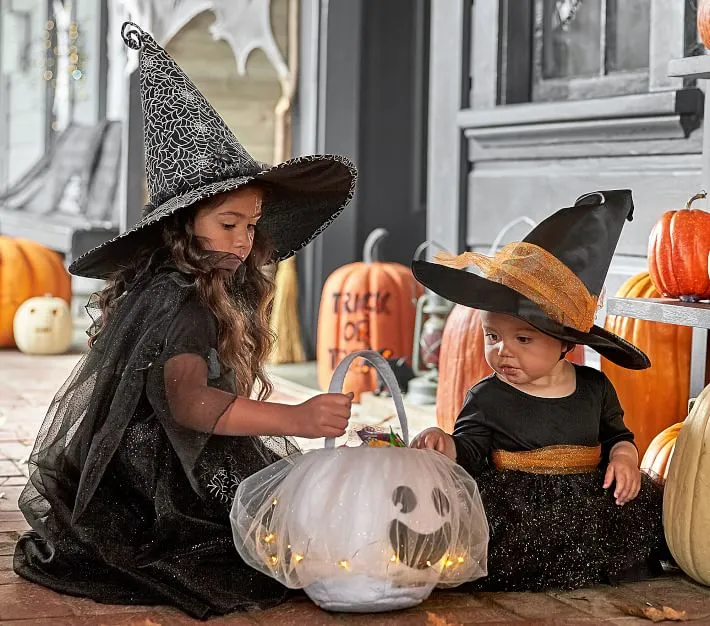
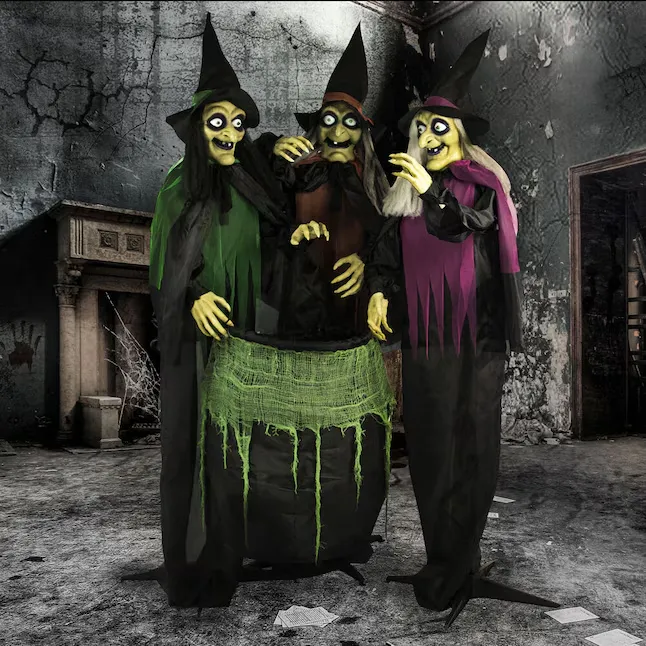
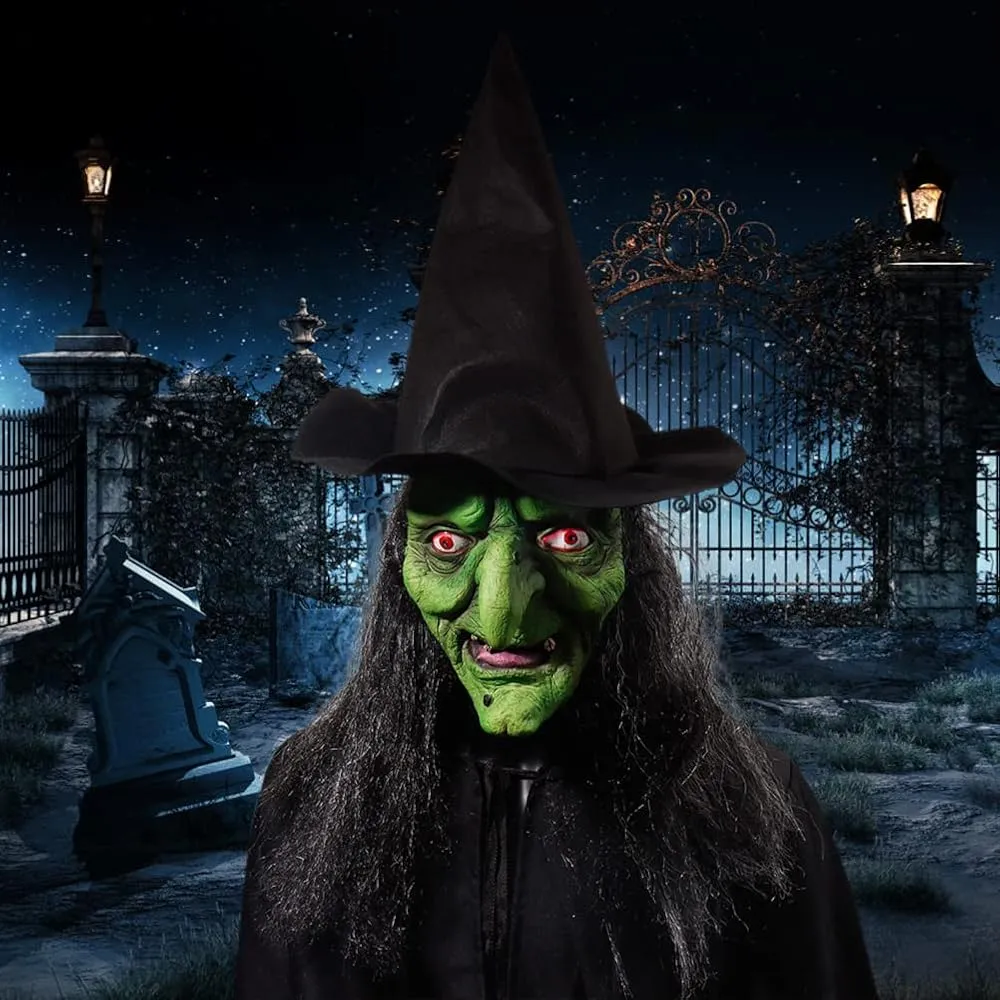
Halloween witches embody a legacy that has evolved across centuries, shifting from wise women and healers in ancient Celtic culture to feared figures during witch hunts, and finally to powerful symbols of empowerment in modern times. As Halloween approaches each year, the witch emerges as a reminder of our complex relationship with the unknown, with society’s shifting values, and with our own inner strength. Whether seen as a spooky icon or an emblem of defiance, the Halloween witch remains a captivating figure, ensuring that her magic endures through the ages.
Understanding the journey of the Halloween witch enriches our appreciation for the holiday, bridging the gap between historical tradition and contemporary celebration. As we don costumes and embrace the Halloween spirit, we honor the mystique of the witch—an enduring symbol of both fear and fascination.
So you’ve uncovered the fascinating history behind Halloween witches… now it’s time to embrace your inner enchantress!
Cast a spell on your wardrobe with our unique witch-themed t-shirts. Each design captures the eerie charm and mystique of the iconic Halloween witch, making it the perfect addition to your spooky wardrobe. ??
Don’t wait – grab your enchanted tee today and let the world know that you’re under the spell of the Halloween spirit! Click now to explore the collection on Amazon and bring a touch of magic to your closet! ?
BUY NOW – My Broom Broke So Now I Go Camping T-Shirt!!!
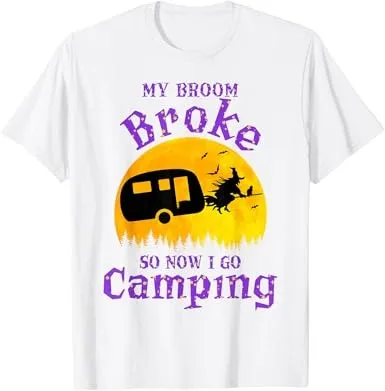
BUY NOW – My Broom Broke So Now I Go Camping T-Shirt!!!
